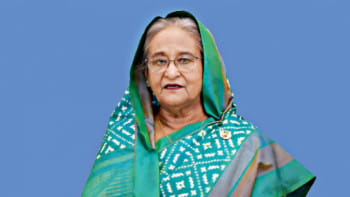Dhaka attack: Searching for the 'affluent jihadists'

"These are not men who did this in any random manner. These were people who were trained and knew exactly how to instil fear."
Shahana Siddiqui knew the owners of the Holey cafe, in Bangladesh's capital, which was attacked last Friday.
Through the night, she was in touch with them and got a blow-by-blow account of the horrifying events.
So who were the men who carried out the country's worst ever militant attack?
They were all Bangladeshi but the one fact that has transfixed this nation is their personal history.
They were almost all from affluent backgrounds and had studied in some of the country's top schools and colleges.
Some of the hostages who were freed described them as well-dressed and English-speaking.
The Facebook account of one of them, Nibras Islam, is filled with pictures of him with friends. There is even one showing him meeting a Bollywood actress.
Another of the attackers has been identified as Rohan Imtiaz.
He studied at one of the country's best private schools, Scholastica, described to me by one Bangladeshi as "Dhaka's equivalent of Eton", a reference to the top English school.
His father, Imtiaz Khan, is a politician with Bangladesh's governing Awami League party.
Rohan had apparently disappeared in December and his father filed a missing person's report with the police a month later.
"I am stunned to learn this, dumbfounded," he told the BBC. "There was nothing at home, no books or anything to indicate he was leaning that way.
Khan is still not sure how his son became a radical.
"Perhaps through the internet," he added.
On the face of it, the suspects appeared to have led normal lives, typical of people from similar elite backgrounds.
One of them played football, another enjoyed listening to music while a third was fond of racing his car through Dhaka's streets at night with his friends.
But at some point, all of them changed, became reclusive and then disappeared from public view.
The North South University is the country's first private university and is located in a quiet, leafy neighbourhood.
This is where Nibras Islam studied.
After a lot of attempts, I finally track down one person who knew him. He agreed to speak to me but only on the phone and after I promised not to reveal his identity.
"I used to see him on campus. I've run into him a few times in the canteen," he tells me.
I ask him if he could tell me what he was like. "Very normal, just like anyone else."
He then told me that there are several Islamic radical groups who discreetly approach the students.
"It's very harmless at first. They ask them if they pray regularly and things like that."
Students who respond are then given literature and asked to attend discussions.
"Eventually they are told: 'This is no life. Join the jihad.' Those who get indoctrinated slowly withdraw from public and then simply disappear."
Bangladesh is not new to militant violence. But many agree that this attack marks a new and dangerous direction.
"This is only the beginning," says Brig Gen Shakhawat Hossain, a retired army officer and security analyst.
"There's more to come."


 For all latest news, follow The Daily Star's Google News channel.
For all latest news, follow The Daily Star's Google News channel. 



Comments